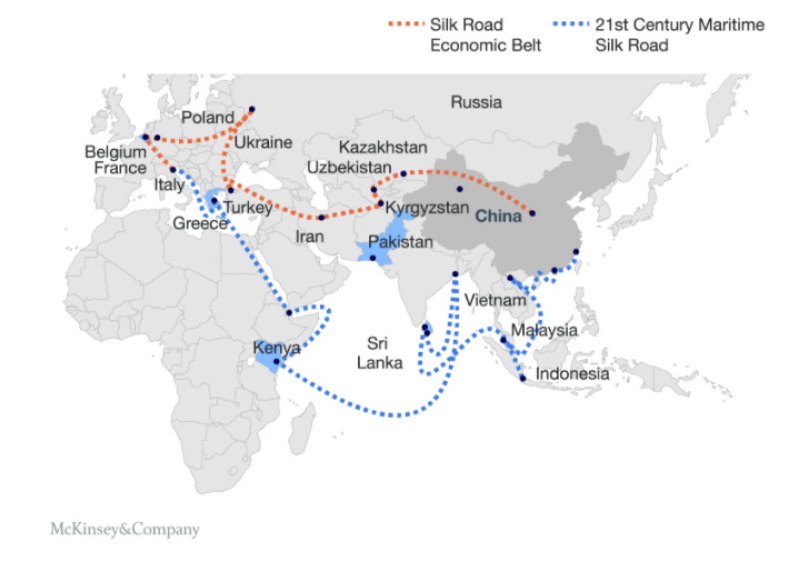
China is no longer the enigmatic communist state in the past century. In fact, their One Belt, One Road (also known as OBOR for short) initiative has seen the country intend to re-establish an ancient trade route that had brought China much economic empowerment back when it was an empire. It has been a number of years now that China is no longer the sleeping dragon. In fact, if you were to visit China every few months since the past decade, chances are you would have noticed the astounding speed of development there. The second largest economy in the world, China is set to take over top spot from the US not too far down the future at the rate things are going right now. Hence, the OBOR initiative is certainly one of the trump cards that they have up their sleeves in order to make that happen at an accelerated pace, and it is good thinking in reality, too. The OBOR, in short, is China’s effort to spearhead an initiative that will ultimately result in the world’s largest economic platform.
It is over two millennia ago that China’s imperial envoy Zhang Qian, played his role in establishing the Silk Road. The ancient Silk Road is actually a network of trade routes which allowed China to be linked to Central Asia as well as the Arab world. Why the Silk Road? Well, apart from the fact that it sounds so much cooler than the Bone Road (from bone china), silk happened to be one of the most important exports in the past from China. Hence, the road back then actually played a vital role in developing the areas in the participating regions across the time span of a few hundred years.
Fast forward to 2013, and China president Xi Jinping decided that it is time to take a page out of China’s history books and lay down the marker for a modern equivalent. Calling it the One Belt One Road (OBOR) initiative, you won’t find horses and camels in the midst of trade caravans making their trek across the vast tundras, deserts, and fertile lands through numerous countries. Rather, the modern day equivalent known as OBOR will see a network of railways, roads, pipelines, and utility grids snake across continents, helping link China and Central Asia, West Asia, as well as segments of South Asia. OBOR is far more than just physical connections, as it is also the perfect idea in creating the world’s largest platform for economic cooperation. No doubt opening up trade in previously remote areas prior to OBOR’s implementation will not stop at just trade. This will most probably see its role expand to include policy coordination, trade and financing collaboration, not to mention co-operation on social and cultural scales. In other words, OBOR sounds like a win-win situation for everyone involved, and the gravy train is about to leave the station, so hop aboard to make the most of it.
The OBOR action plan will comprise of the Silk Road Economic Belt and the 21st Century Maritime Silk Road as the major twin components that hold it together. The Silk Road Economic Belt will see China connected to Europe via Central Asia, the Persian Gulf, the Mediterranean via West Asia, with South Asia being the gateway to the Indian Ocean. The 21st Century Maritime Silk Road will see connections established among regional waterways, and so far over 60 countries with a combined GDP of $21 trillion are more than interested to be part of the OBOR master plan.
To date, Hungary, Mongolia, Russia, Tajikistan, and Turkey have signed bilateral cooperation agreements with China concerning OBOR. Expect to see a boom in development with new mega projects implemented, such as a railway track between eastern China and Iran, with the possibility of expansion to Europe. New rail links with Laos and Thailand as well as high-speed-rail projects in Indonesia are part of the deal, in addition to possible oil pipelines from Malaysia all the way to China.
All of these happenings are certainly foreseen by our Heavenly Father, and you can be sure that the Road to Jerusalem movement that intends to follow the ancient Silk Road might find new impetus with the implementation of OBOR. Will we see a new explosion of faith among the Chinese and its tribes soon, bringing absolute moral values to a society that has for the longest time lost their moral compass?






